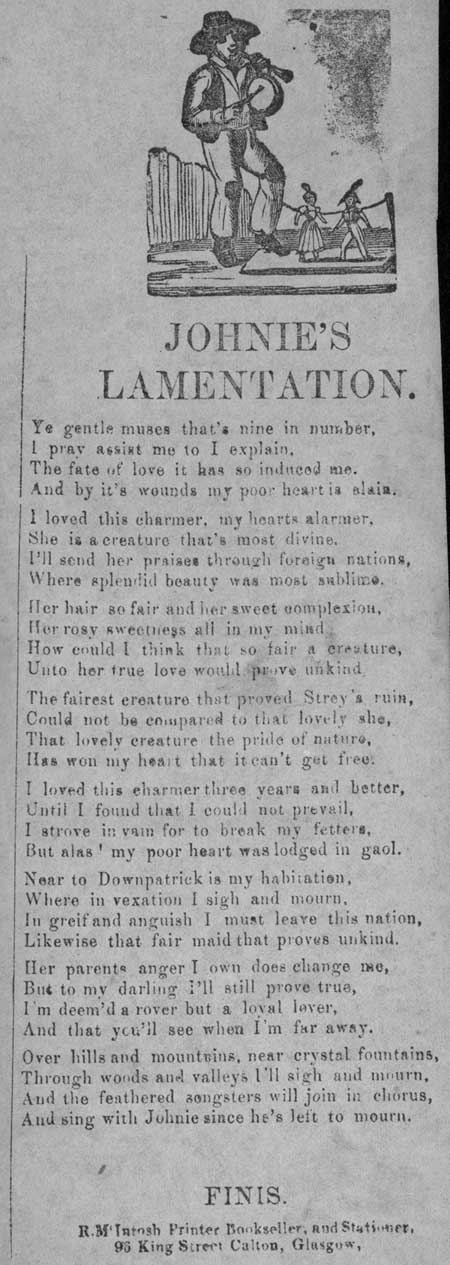Commentary
Verse 1: 'Ye gentle muses that's nine in number, / I pray assist me to I explain, / The fate of love it has so induced me, / And by it's wounds my poor heart is slain.' This broadside was published by Robert McIntosh of 9 King Street, Calton, in Glasgow. It is not dated. The nine muses, which are invoked in the first line of this ballad, are the Greek goddesses of arts, culture and learning. The ancient Greeks believed that the muses inspired all poetry, music and art, and for centuries it has been a tradition for poets to acknowledge the muses, or to ask the muses for help, in their work. Thus references to the muses can be found in some of the greatest and most ambitious poetic works ever created, but also in much more modest poems and songs such as 'Johnie's Lamentation'. Early ballads were dramatic or humorous narrative songs derived from folk culture that predated printing. Originally perpetuated by word of mouth, many ballads survive because they were recorded on broadsides. Musical notation was rarely printed, as tunes were usually established favourites. The term 'ballad' eventually applied more broadly to any kind of topical or popular verse.
View Transcription | Download PDF Facsimile
|
 |
Probable date published:
1849- shelfmark: L.C.Fol.178.A.2(013)
 View larger image
View larger image
|


